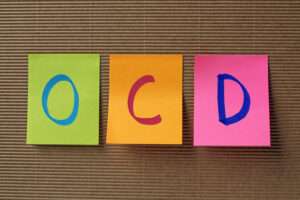Introduction:
Obsessive-Compulsive Disorder (OCD) can be a challenging condition, causing significant distress and impairment in daily life. If you’re seeking effective methods on how to get rid of OCD, you’re not alone. Many individuals experience OCD symptoms, but with the right strategies, it’s possible to manage and reduce these symptoms. In this guide, we will explore seven proven approaches on how to get rid of OCD without relying on medications.
 Understanding OCD
Understanding OCD
Before diving into strategies on how to get rid of OCD, it’s important to understand what OCD is. OCD is characterized by recurring, unwanted thoughts (obsessions) and repetitive behaviors (compulsions) that individuals feel driven to perform. These behaviors often provide only temporary relief from anxiety but can interfere with daily activities, relationships, and overall quality of life.
For those seeking Best OCD Treatment, consider visiting:
1. Cognitive Behavioral Therapy (CBT) for OCD
One of the most effective treatments for OCD is Cognitive Behavioral Therapy (CBT). This therapeutic approach focuses on altering negative thought patterns and behaviors to help you learn how to get rid of OCD symptoms.
Cognitive Restructuring
Cognitive restructuring involves identifying irrational beliefs associated with OCD and challenging them. By reframing these thoughts, individuals can alleviate anxiety and reduce compulsive behaviors.
Exposure and Response Prevention (ERP)
A key component of CBT, ERP involves gradually exposing individuals to their fears while helping them refrain from engaging in compulsive actions. Over time, this reduces the anxiety associated with the obsessions.
For more information on CBT, visit the National Institute of Mental Health.
2. Mindfulness and Meditation Techniques for OCD
Practicing mindfulness and meditation can significantly alleviate OCD symptoms. These techniques encourage individuals to focus on the present moment, helping reduce anxiety and intrusive thoughts.
Mindfulness Meditation
Engaging in mindfulness allows individuals to observe their thoughts without judgment, creating distance from obsessive thinking. This practice can help reduce the intensity of OCD symptoms.
Deep Breathing Exercises
Simple breathing techniques can ground individuals during moments of anxiety. Concentrating on slow, deep breaths can provide immediate relief from overwhelming feelings.
To learn more about mindfulness techniques, check out resources from the Substance Abuse and Mental Health Services Administration.
3. Building a Support Network to Help Get Rid of OCD
Having a strong support network is essential for those managing OCD. Connecting with friends, family, or support groups can provide understanding and encouragement.
Support Groups
Participating in local or online support groups can be incredibly beneficial. Sharing experiences with others who face similar challenges can help reduce feelings of isolation.
Educating Loved Ones
Providing information about OCD to family and friends fosters empathy and creates a supportive environment for individuals coping with the disorder.
4. Journaling as a Tool to Get Rid of OCD
Journaling can serve as an effective tool for managing OCD symptoms. Writing down thoughts and emotions can help individuals process their feelings and identify triggers for their obsessions.
Tracking Patterns
Maintaining a journal can help individuals recognize patterns in their OCD triggers, allowing for the development of personalized coping strategies.
Emotional Expression
Journaling provides a safe outlet for emotions that may be challenging to communicate verbally. This can lead to greater self-awareness and emotional relief.
5. Limiting Stress to Help Get Rid of OCD
High stress levels can exacerbate OCD symptoms. Implementing stress-reduction techniques can significantly improve overall well-being.
Physical Activity
Regular exercise can reduce anxiety and improve mood. Activities such as yoga, running, or even walking can be particularly beneficial.
Healthy Lifestyle Choices
Maintaining a balanced diet, ensuring adequate sleep, and engaging in self-care practices create a strong foundation for managing stress and anxiety. For additional tips on managing stress, refer to the Centers for Disease Control and Prevention.
6. Educating Yourself About OCD Management
Understanding OCD and its mechanisms can empower individuals to manage their symptoms more effectively.
Research
Reading books and articles about OCD provides insights into the disorder, treatment options, and coping strategies. Knowledge equips individuals to handle their symptoms better.
Websites such as the International OCD Foundation offer valuable information and support for those affected by OCD.
7. Seeking Professional Help for OCD Treatment
While self-help strategies can be effective, seeking professional help is essential for those struggling with severe OCD symptoms.
Therapists and Psychologists
Working with a mental health professional who specializes in OCD can provide personalized strategies and ongoing support tailored to individual needs.
Continued Education
Engaging in therapy offers continued education on managing OCD, ensuring individuals have the necessary tools to navigate their journey.
Conclusion
If you’re looking for effective ways to get rid of OCD, remember that managing and overcoming this condition is a multifaceted process that requires dedication, patience, and the right strategies. By incorporating cognitive-behavioral techniques, mindfulness practices, support networks, and stress management, individuals can significantly improve their quality of life.